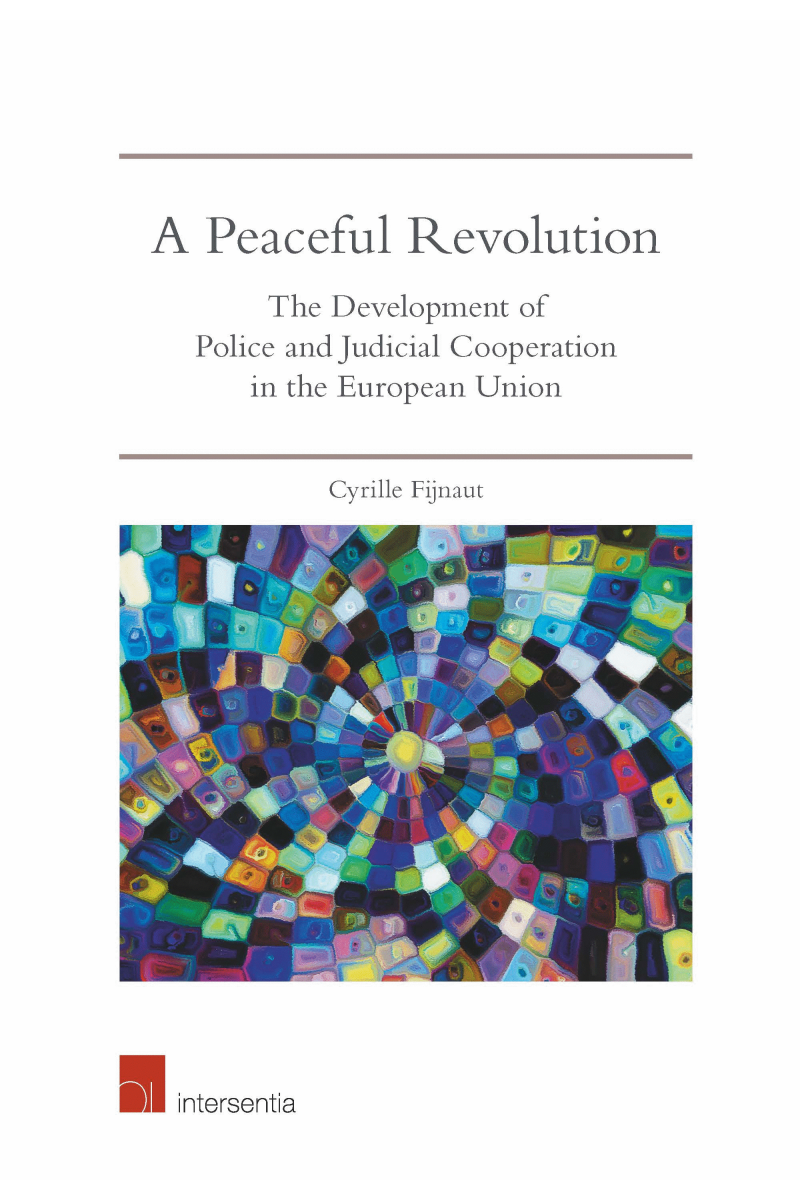 maestro
mastercard
visa
maestro
mastercard
visa

A Peaceful Revolution
The Development of Police and Judicial Cooperation in the European Union

"[...] the book is an impressive, authoritative overview of the development of police and judicial cooperation in Europe and in the European Union." -- Valsamis Mitsilegas, Common Market Law Review, 2021
The debate surrounding police and judicial cooperation in the European Union can be criticised for focussing too much on certain forms of cooperation or on specific problems. As a result, a thorough overview of what has been achieved in this area since the Maastricht Treaty’s entry into force in November 1993 is lacking. In contrast to the disjointed and mostly secret cooperation between police and judicial services in Europe prior to 1993, the current regime has established a coherent and transparent system within the EU that can only be described as revolutionary.
This book discusses that peaceful revolution in light of the action programmes (the Brussels Programme, the Tampere Programme, the Hague Programme and the Stockholm Programme) which were drafted in concurrence with all major changes to the constitutional relations within the European Union: the Maastricht Treaty, the Amsterdam Treaty, the Nice Treaty, the Rome Treaty and the Lisbon Treaty. This programmatic approach makes it possible to present in a clear manner the imposing array of police and judicial agencies, facilities and networks (Europol, Schengen Information System, Eurojust, European Arrest Warrant, etc.) created through democratic processes with the aim of ensuring the security of the citizens of the European Union. In particular, the problems concerning the control of internal and external borders and with respect to the containment of terrorism demonstrate that this system urgently needs to be reinforced.
It is ironic that the Brexit negotiations demonstrate the importance of the current system of police and judicial cooperation in the European Union: the United Kingdom would like to keep the great benefits of a number of its crucial components.
Cyrille Fijnaut is a former Professor of Criminology and Criminal Law at Erasmus University Rotterdam, KU Leuven and Tilburg University. He is a leading expert on the transatlantic history of criminology, the containment of organised crime and terrorism, comparative criminal procedure and police law, and the history of policing in Europe and the Low Countries.
| Type of product | Book |
|---|---|
| Format | Paperback |
| EAN / ISSN | 9781780686974 / 9781780689227 |
| Weight | 1324 g |
| Status | Available |
| Number of pages | xxvi + 824 p. |
| Access to exercice | No |
| Publisher | Intersentia |
| Language | English |
| Publication Date | Sep 12, 2019 |
| Available on Strada Belgique | No |
| Available on Strada Europe | No |
| Available on Strada Luxembourg | No |
Downloads
- Table of contents and preliminary pages
Cyrille Fijnaut - Chapter 1. General Introduction
Cyrille Fijnaut - Part I. The Historical Background to Police and Judicial Cooperation in the European Union
- Chapter 2. Police and Judicial Cooperation in Europe Up to the End of the Second World War
Cyrille Fijnaut - Chapter 3. Police and Judicial Cooperation in Europe after the Second World War
Cyrille Fijnaut - Part II. The Foundation of Police and Judicial Cooperation in the European Union
- Chapter 4. The Treaty of Maastricht and the Brussels Programme
Cyrille Fijnaut - Chapter 5. The Treaty of Amsterdam and the Tampere Programme
Cyrille Fijnaut - Chapter 6. The Treaty of Rome and the Hague Programme
Cyrille Fijnaut - Part III. The Current State of Police and Judicial Cooperation in the European Union
- Chapter 7. The Treaty of Lisbon and the Stockholm Programme
Cyrille Fijnaut - Chapter 8. The Treaty of Lisbon and the European Agenda on Security
Cyrille Fijnaut - Chapter 9. General Conclusion
Cyrille Fijnaut - Bibliography
Cyrille Fijnaut